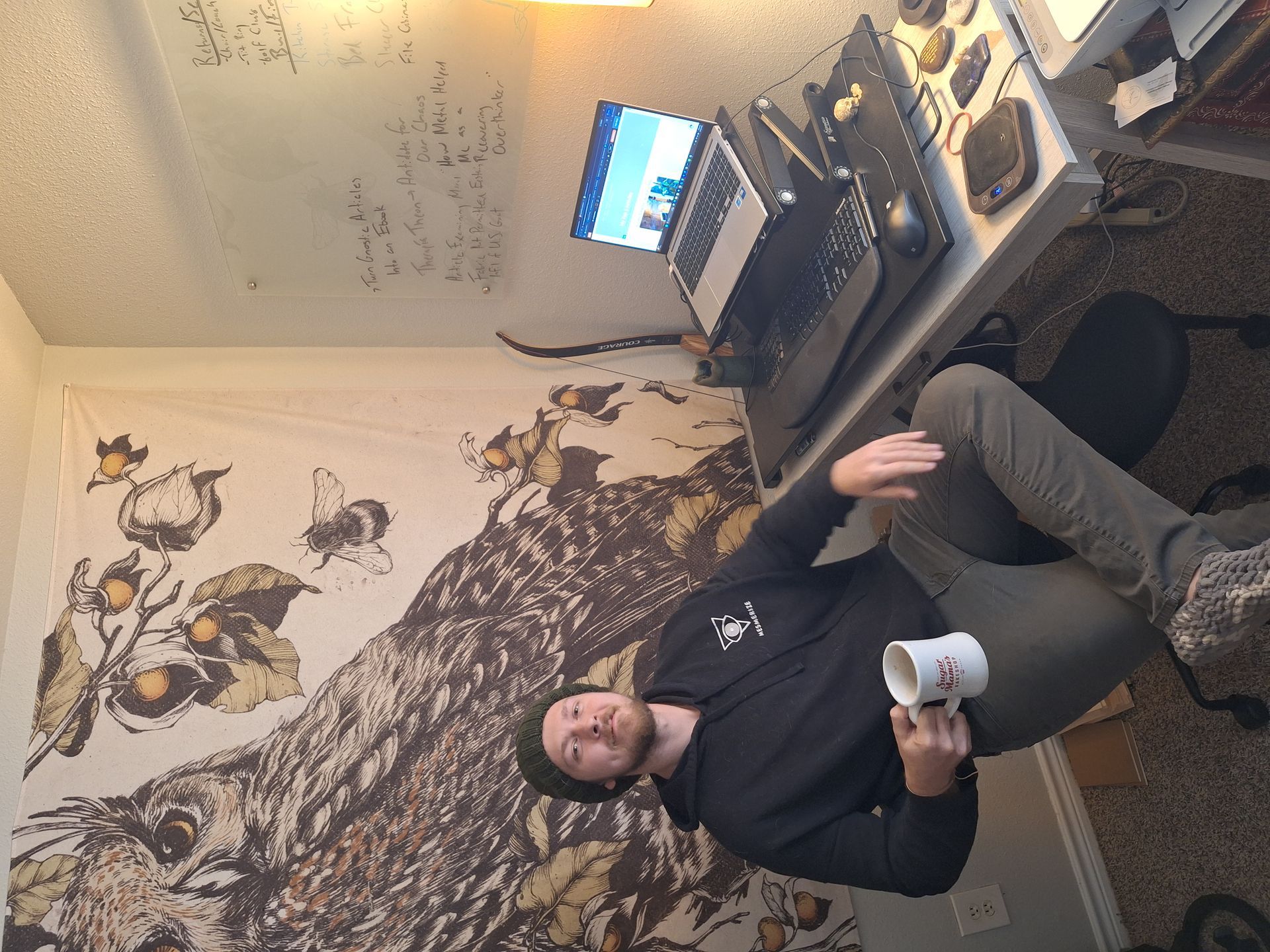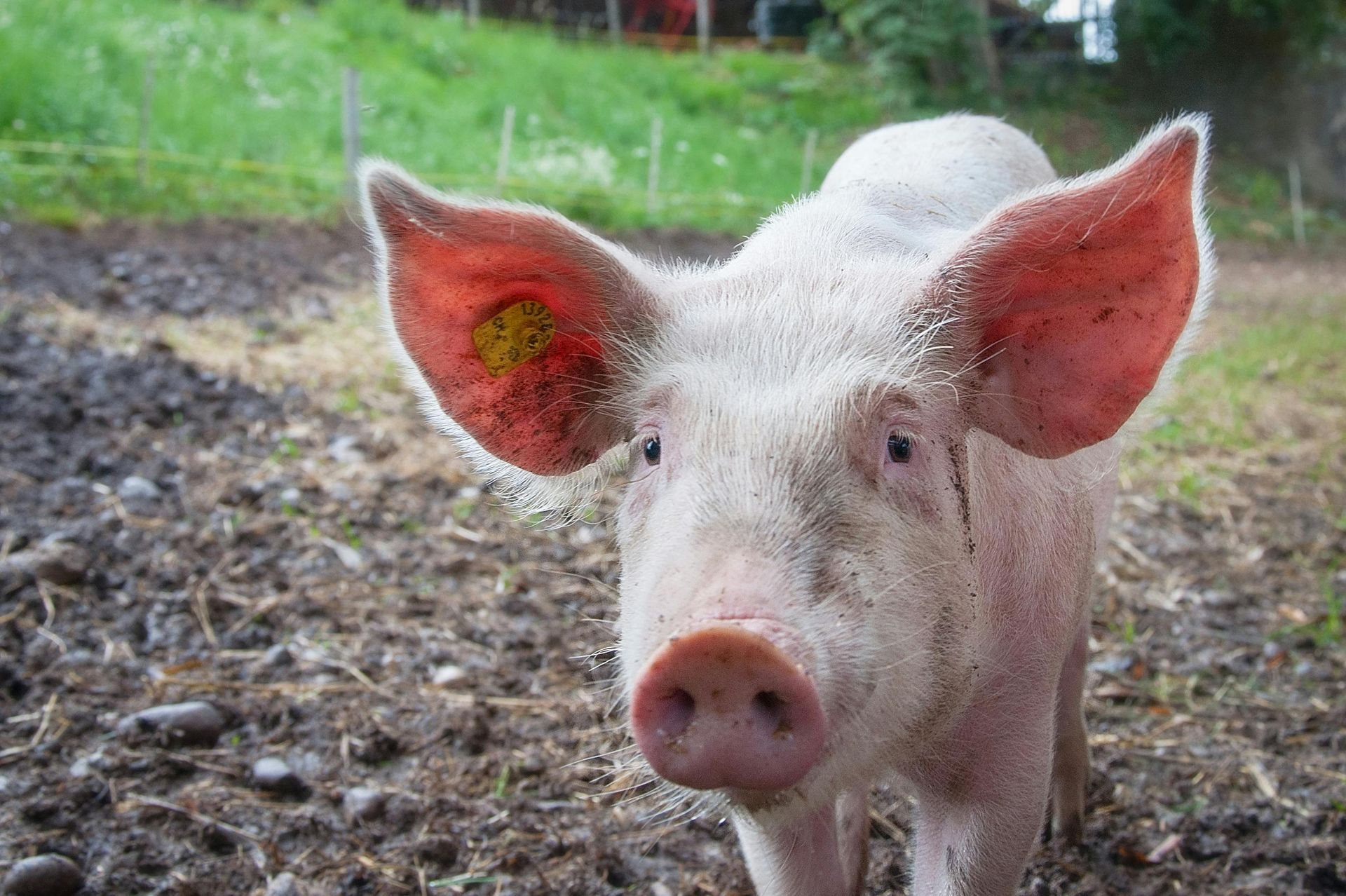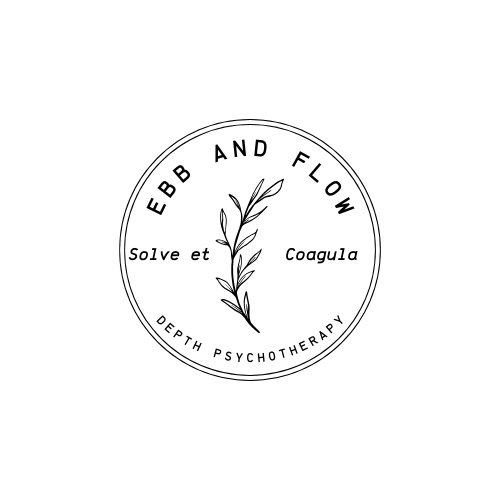Using Gratitude to Be More Fully Present
Michael Ebbinghaus • January 21, 2022
'Thank You' Welcomes What Is

There are many good reasons to be upset, bitter, and to wish for something better. Rationality is good at finding reasons; it can find good reasons for anything! Richard Feynman said that we are the easiest people to fool and so must not fool ourselves. Everything we experience reflects us. It is the oft quoted and humorous anecdote of the one who consistently runs into assholes; who should consider that he may, in fact, be the asshole.
Establishing a gratitude practice is an effective method for disengaging from our stories and being more fully awakened to the present. Each of us is vulnerable to construing our reality in such a way that we justify our bitterness. We have to work a job we dislike to pay for food and a place to live, put up with selfish and bitter people stuck in the same conundrum, all while being faced with the prospect of doing it every day. This is enough to drive anyone crazy.
One cannot simply decide to incorporate a mindset. The frame we inhabit is the result of the events that have happened to us and the relationship we’ve taken to them. These patterns are perpetuated and reinforced day-after-week-after-month-after-year unless we exercise a conscious effort. We continue to practice this relationship in the present moment to all experience.
That driver cut me off – asshole.
Waking up feels like journeying into living death.
Where I am headed does not excite or invigorate me in any way.
Do you see how all of these are stories? Are they true? Is there something true, good, and/or beautiful that they could point us towards?
One of the best descriptions of the gratitude mindset I have discovered is described by former Navy SEAL and author/speaker Jocko Willink. His response to any supposedly negative situation is “good” (see his explanation of it
or a beautifully orchestrated musical interpretation). This is putting the trickster archetype to good use, it shows us the folly of our assumptions, the arbitrariness of perspective, and how the entire flow of experience can be met with an attitude that fully accepts and integrates what is happening instead of exercising a misguided effort of imagining things had gone another way (though it’s important for doing differently in another present moment).
When Jocko uses the term "good" it is always in reference to a scenario that can immediately be perceived as negative. Something goes wrong, an unexpected impediment arises, we fail to achieve or acquire something we’ve worked tirelessly towards, yet there is always some good that comes from it, and it is up to us to find what that is.
"Defaulting to gratitude is not something the mind wants to do."
At the beginning of 2021, I went through a horrendous breakup: the worst scenario I could dream of occurred. It shattered me, and I stumbled back to my parents’ home to rebuild the tatters of my rent heart. But even as it happened, when it became apparent that the relationship was beyond salvaging, there was a voice that told me “It is good to let this go.” There were many reasons why this was exactly what needed to happen. I had the opportunity to revisit deep childhood wounds. I was no longer attached to being in California and could continue my training in Texas while enjoying much greater freedom and mobility under the pandemic. I was liberated to be with a partner that could appreciate the fullness of my being, and my former partner could be cared for in the ways I could not offer. In everything that happens to us, there are many things we could label as good and bad. It is never all good or all bad, and whatever we choose to focus on reflects the choice we make – illustrates in vivid color how we construct our world.
Acknowledging the good welcomes gratitude. Recognizing that difficulty and heartbreak brings us to fuller awareness of the Truth belies abhorrence and avoidance. This is not to excuse the horror we are capable of. It is a difficult line to walk when one says that there is good that comes from rape, murder, genocide, injustice. I will maintain that there is, but that is a journey for those that are affected by such deep wounds. One must also recognize the pain in the perpetrators, how closed and lonely their hearts must be to commit violence and pain.
Defaulting to gratitude is not something the mind wants to do. It’s not something our culture has encouraged – such an attitude would discourage consumption. Our logic is powerful, and the mind lives in the world of rational relation while ignoring any of its tendencies towards irrationality. When gratitude is practiced, one can witness that it is not an optimistic departure from reality, a floating above the woes and worries of the world, but of meeting them fully. Notice what happens when gratitude is not the default: we make abundant assumptions. That person is bad, this should not have happened, I’ll never recover from this. If you’re worried about optimistic escapism, look to how your pessimism permits you to purposefully deviate from reality.
Because we have our spiritual and cognitive momentum to contend with, conscious exercise in another direction is warranted. Below are three simple steps and practices to begin to shift our mindsets from victim to empowered, from pessimistic escapism to full-bodied acknowledgement.
Journaling
Gratitude is an excellent adjunct to any journaling practice. Somewhere in your entry, write down 5-10 things that you’re grateful for. As you write down each person, experience, place, etc., call them into your mind. What arises in your body? Why are you grateful for them, what joys and truths do they bring?
Metta Meditation
Metta is also known as loving-kindness meditation. Call into awareness someone with whom you have an uncomplicated relationship. Send them your love, thank them for their presence in your life. Wish that they be happy, that they be free from suffering. As this practice develops, move into others with whom the relationship is rockier. You may at some stage also find yourself being able to work with the faces of those that have wronged you or that have perpetuated incredible malice and suffering in the world.
Gratitude Yoga
In all our practices, life is the greatest teacher and forum; it is the place in which we will transmute our and others' suffering. All of life is a yoga. Begin a practice of gratitude towards everything that happens to you in a day. Spilled coffee on your shirt. Thank you. Got in a car accident. Thank you. My mother has cancer. Thank you. Again, this is not a denial but an acceptance, a welcoming in of all that these experiences bring. If we numb the pain we also numb the ecstasy.
In all of this, recognize that it is a practice, and in the space of practice failure is a great success. No one achieves balance without the potential to regress. Life will present us with times of high and low. It is not our intention to emphasize the highs or to blunt the lows, but to maintain a sense of stability through each. Gratitude is one of the most powerful means for fully welcoming all that life gives to us.


